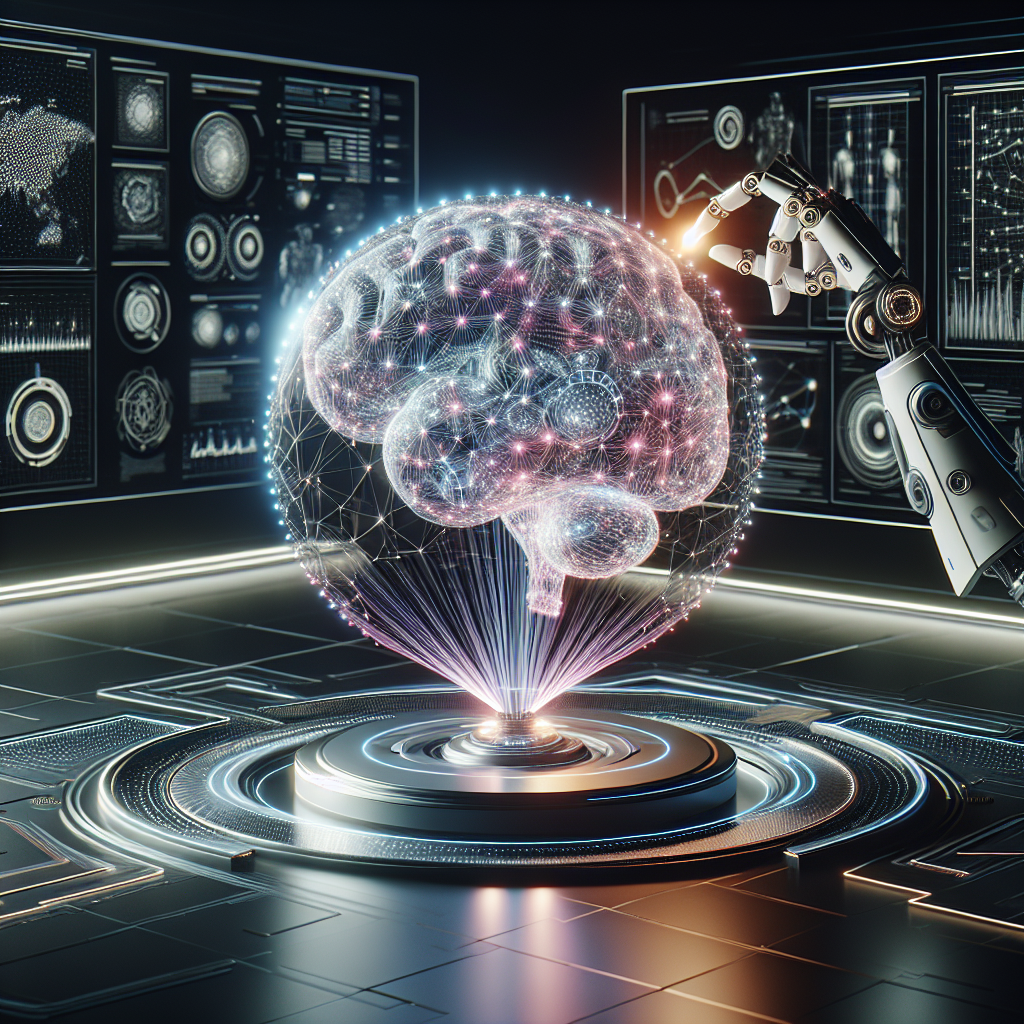The Future is Here: The Rise of Artificial General Intelligence
In recent years, there has been a significant uptick in the development and deployment of artificial intelligence (AI) technologies. From virtual assistants like Siri and Alexa to self-driving cars and advanced robotics, AI is increasingly becoming a part of our daily lives. However, while much attention has been focused on narrow AI – systems that are designed for specific tasks – there is growing interest and concern about the potential for the development of artificial general intelligence (AGI) – systems that have the ability to perform any intellectual task that a human can.
What is Artificial General Intelligence?
Artificial general intelligence, often referred to as AGI, is the hypothetical ability of a machine to perform any intellectual task that a human can. Unlike narrow AI, which is designed for specific tasks such as playing chess or recognizing speech, AGI is intended to have a broad range of cognitive abilities, including reasoning, problem-solving, learning, and creativity.
The development of AGI has long been a goal of AI researchers, but it is also a topic of intense debate and speculation. Some experts believe that AGI is inevitable and that it will have a profound impact on society, while others argue that the development of AGI poses serious risks and ethical challenges.
The Rise of AGI
While AGI remains a theoretical concept, there have been significant advances in AI research and technology that have brought us closer to realizing this goal. One key development is the rise of deep learning, a subfield of AI that uses artificial neural networks to simulate the human brain’s ability to learn and adapt.
Deep learning has enabled machines to perform complex tasks such as image and speech recognition, natural language processing, and decision-making. These advances have led to the development of increasingly sophisticated AI systems that can perform tasks with a level of accuracy and efficiency that was once thought impossible.
In addition to deep learning, other areas of AI research are also advancing the field towards AGI. For example, reinforcement learning – a form of machine learning that uses rewards and punishments to guide an AI system’s behavior – has been used to teach machines to play complex games like Go and chess at a superhuman level.
Furthermore, research in areas such as cognitive computing, neuromorphic computing, and quantum computing are also pushing the boundaries of AI and bringing us closer to the development of AGI.
The Implications of AGI
The potential development of AGI has far-reaching implications for society, the economy, and the future of humanity. On the one hand, AGI has the potential to revolutionize industries, improve productivity, and solve some of the world’s most pressing problems.
For example, AGI could help us find cures for diseases, address climate change, and enhance our understanding of the universe. It could also lead to the automation of many jobs, freeing up humans to pursue more fulfilling and creative endeavors.
On the other hand, the development of AGI also poses significant risks and challenges. One concern is the potential for AGI to outperform humans in all intellectual tasks, leading to widespread unemployment and social upheaval. There are also concerns about the misuse of AGI for malicious purposes, such as surveillance, warfare, and propaganda.
Furthermore, there are ethical questions about the rights and responsibilities of AGI, including issues related to privacy, accountability, and the potential for AGI to develop consciousness and emotions.
FAQs
Q: Will AGI surpass human intelligence?
A: It is possible that AGI could surpass human intelligence in certain intellectual tasks, but it is unlikely to surpass human intelligence in all areas. Humans possess a unique combination of cognitive abilities, emotions, and consciousness that are difficult to replicate in machines.
Q: How close are we to developing AGI?
A: While significant progress has been made in AI research and technology, the development of AGI remains a long-term goal. It is difficult to predict when AGI will be achieved, but many experts believe that it could happen within the next few decades.
Q: What are the risks of AGI?
A: The development of AGI poses risks such as widespread unemployment, social upheaval, misuse for malicious purposes, and ethical concerns. It is important for researchers, policymakers, and industry stakeholders to address these risks and develop safeguards to ensure the responsible development and deployment of AGI.
In conclusion, the rise of artificial general intelligence has the potential to revolutionize society and improve our lives in ways that we can only imagine. However, it also poses significant risks and challenges that must be addressed to ensure a safe and ethical future for humanity. As we continue to push the boundaries of AI research and technology, it is important for us to consider the implications of AGI and work together to harness its potential for the greater good.

